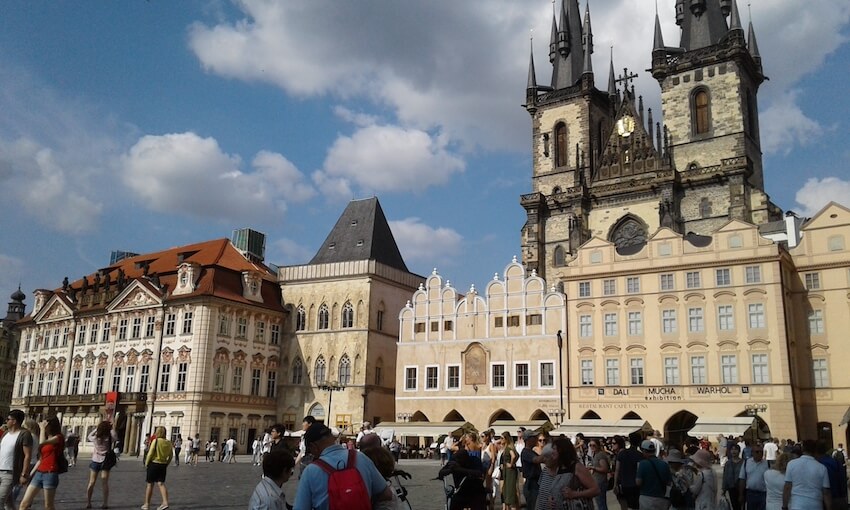 “Hey Google, which is the nicer city, Vienna or Budapest?”
“Hey Google, which is the nicer city, Vienna or Budapest?”
What a cultural insult of a question, condensing centuries of history, art, empires and architecture into a shallow beauty contest. Google didn’t care. It excels in answering daft questions, and offered me 112,000 solutions. I was piecing together a grand tour of Eastern Europe, and trying to decide how much time to spend in every city was already stoking the excitement.
Centuries ago, the English upper-crust would embark on a Grand Tour of the continent to hone their education, revelling in fine art, sublime music, exotic food and foreign languages by day, and drinking, gambling and enjoying amorous encounters come nightfall.
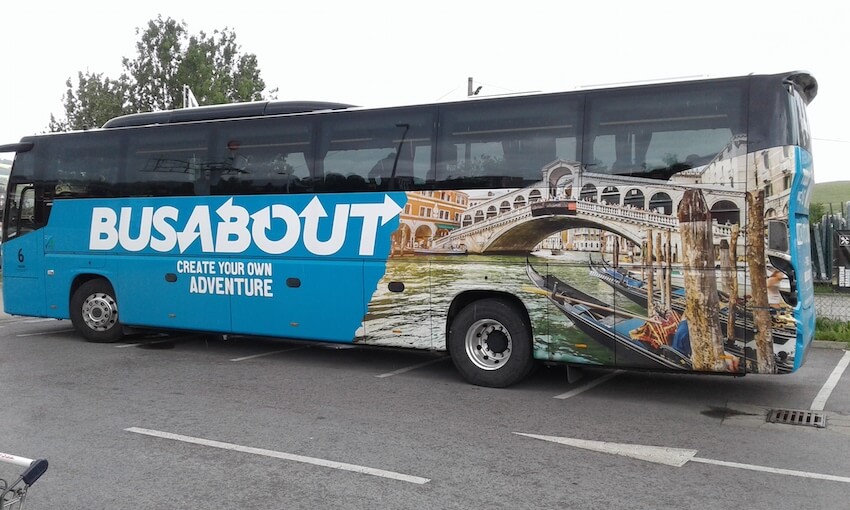 Now Busabout is introducing new generations to those same delights of swanning through elegant European cities, and you don’t need to pockets of gold to afford it.
Now Busabout is introducing new generations to those same delights of swanning through elegant European cities, and you don’t need to pockets of gold to afford it.
A fleet of hop on, hop off coaches runs on various interconnecting loops throughout Europe, so you can hop on in Prague, hop off in Munich. Or climb on in Paris and aim for Barcelona, Madrid, then Lisbon. A bus swings by every two days so you can stay as long as you like in each city, and change plans midstream if Google stuffs up on how long to devote to Porto or Zagreb.
If your feet aren’t itching already, how about this: the bus drops you off at a recommended hostel right in the centre, and the young guide on board tells you about the city, offers discounted sightseeing excursions, and organises a communal supper if you don’t want to dine alone that night. It makes getting around Europe simple and safe, with the chance of making friends en route.
 Fast forward to Prague, where I return to my hostel after a day of exploring and see a driver carefully washing his jazzily painted bright blue bus outside. I fizz with relief and anticipation, because I’m joining Busabout in the morning for the first time, and I’m chuffed to know it actually exists.
Fast forward to Prague, where I return to my hostel after a day of exploring and see a driver carefully washing his jazzily painted bright blue bus outside. I fizz with relief and anticipation, because I’m joining Busabout in the morning for the first time, and I’m chuffed to know it actually exists.
My Eastern Europe adventure took me to unimaginably glorious cities that really was a beauty contest for buildings – Český Krumlov, Salzburg, Vienna, Krakow and Budapest, bristling with bewitching castles, ancient cobbled streets, towering churches and beautiful old squares.
Seven days in too-touristy Prague was a touch too much, but it gave me time for a day trip to Terezin, an elegant town that the Nazis turned into a horrific concentration camp. The theme of death continued at Sedlec Ossuary in Kutná Hora, where monks artistically decorated a small church with the skeletons of 40,000 people. There’s an unsettling fascination in gazing at jaunty chandeliers strung together from skulls and femurs.
Some days with no definite plans and an unknown city to explore I felt a heady freedom from strolling wherever I fancied, popping into a random museum and eating in cafés that wafted me in with tempting, foreign odours.
Each city boasts a brilliant transport system too, with buses, trams and underground trains all linked to one ticket. My best buy was always a multi-day pass, so I could explore endlessly and not worry if a tram diverted in an unexpected direction, because I just got off, crossed the road, and caught one back again. And getting lost is always the best way of finding something new.
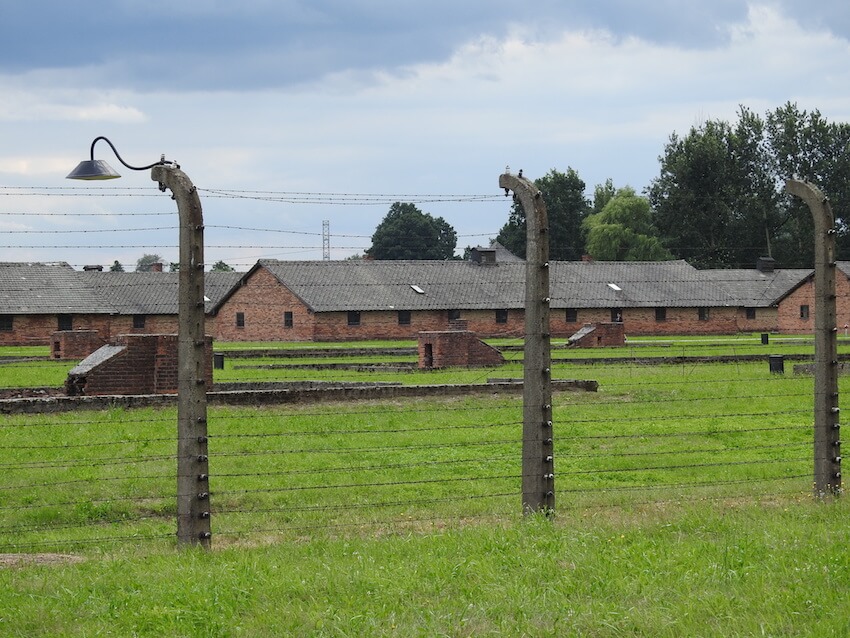 But these are cities of sorrow too, scarred by bombs of the Second World War and holocaust horrors under Nazis occupation. Krakow in Poland is where the dark gloom of history feels most severe, because a trip to Auschwitz concentration camp is a must from here. I booked my excursion through the Busabout guide, who summed up the entire Second World War in 10 minutes, but urged everyone to experience a piece of history that it’s vital to be aware of.
But these are cities of sorrow too, scarred by bombs of the Second World War and holocaust horrors under Nazis occupation. Krakow in Poland is where the dark gloom of history feels most severe, because a trip to Auschwitz concentration camp is a must from here. I booked my excursion through the Busabout guide, who summed up the entire Second World War in 10 minutes, but urged everyone to experience a piece of history that it’s vital to be aware of.
It wasn’t how the carefree youngsters checking into Krakow’s Little Havana Party Hostel expected to spend their time, but we all came away shell-shocked by the vast scale and premeditated intent of the Nazi’s biggest death factory. The weather in Krakow was suitably bleak, but it was summer so at least it hadn’t fallen to the minus 16 deg that a Syrian kebab shop owner told me he endures every winter.
Salzburg is far cheerier, where the recommended YoHo Hostel plays the Sound of Music at 8pm every evening. Being Austria, it begins with alarming punctuality. It’s funny to watch millenniums wander in and cast a disparaging glance at the screen, then still be sitting there mesmerised when Captain von Trapp and Maria lead the kids over same mountains that we saw that morning.
The next stop was Grünau, where a few of us disembarked for some downtime in the Austrian Alps. Here there’s no mad frenzy to tick all the sightseeing boxes. Just country lanes to wander, a village to admire, and a bus or bike ride to Almsee Lake. In the evenings, The Treehouse hostel owner Gerhard Bammer cooks delightfully hearty meals, and everyone falls into bed early, exhausted by doing nothing in the country air.
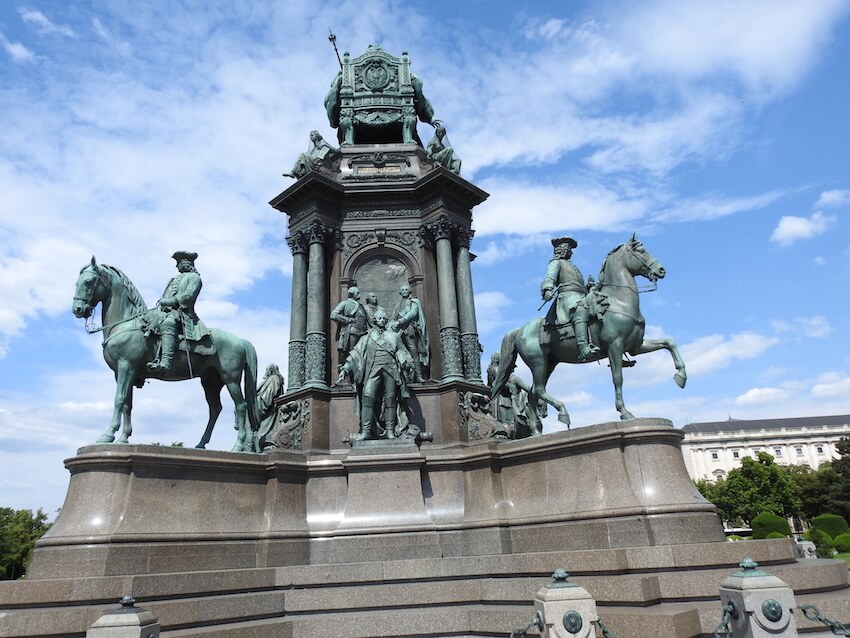 Exploring Vienna left my jaw hanging open in astonishment. Each street lures you in with ornate edifices, and leads into whole squares of outlandish extravaganza. You can explore the grounds of Belvedere Palace and Schönbrunn summer palace for free, and marvel at the decadence of the Habsburg emperors who needed different palaces for different seasons.
Exploring Vienna left my jaw hanging open in astonishment. Each street lures you in with ornate edifices, and leads into whole squares of outlandish extravaganza. You can explore the grounds of Belvedere Palace and Schönbrunn summer palace for free, and marvel at the decadence of the Habsburg emperors who needed different palaces for different seasons.
Vienna’s House of Music baffled me with exhibitions showing how the ear turns sound waves into audio. Then I stood in front of an interactive video of the Vienna Philharmonic Orchestra and tried to conduct the Can-Can. I did a passable job, but the next guy got heckled by the orchestra for messing up the Radetzky March. That was such fun that the next virtual conductor waved the baton in ridiculous swirls just to see what other pre-recorded insults the orchestra would yell at him.
While Vienna waltzes off with the prize for architectural overload, it was Budapest that won me over with its stunning sights but less pristine, grittier vibe. It’s more affordable too, with Hungary, Poland and the Czech Republic all budget-friendly for rand-toting travellers. I chugged up and down the Danube on the public boat-bus, wallowed in Turkish baths three times, ate paprika-tinged everything, went to the theatre and watched a band play for free by the river.
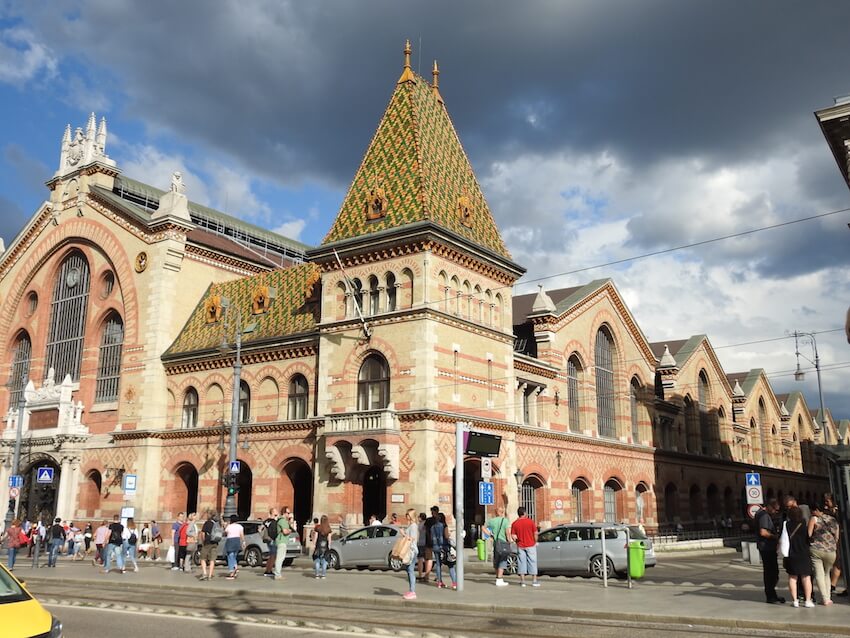 A bike tour through the once separate centres of Buda and Pest left me laughing with exhilaration, and I realised I could have spent longer than six nights there. I must tell Google.
A bike tour through the once separate centres of Buda and Pest left me laughing with exhilaration, and I realised I could have spent longer than six nights there. I must tell Google.
How to Busabout:
Busabout covers 14 countries in 38 stops ranging from Amsterdam to Zakopane, so look at the route map and decide where you want to go.
Buses run from May 1 to October 17 and tickets cover a set number of stops, starting at R3,500 for three to R19.500 for an unlimited amount.
Don’t rush through too quickly. Two nights in some small towns is plenty, but for a heavy hitting city, stay at least four to get the feel of it.
If you don’t fancy the recommended hostel, search for accommodation within walking distance of the drop-off point on a website like Booking.com.
Travel light. In some quaint old towns the bus can’t park right outside the hostel, so you’ll have to walk for a few minutes with your bags.
You can book through any travel agent, or online at www.busabout.com. The website lets you book your seat and accommodation, and using your phone or laptop you can amend your plans mid-journey.